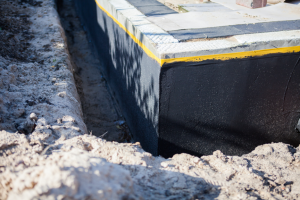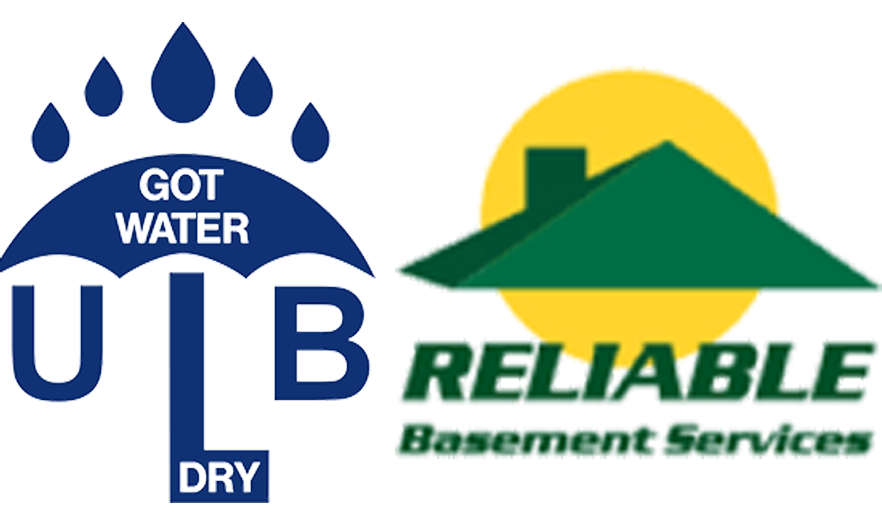
When it comes to protecting your home, basement waterproofing is an essential step. A wet basement can lead to a multitude of problems, including mold growth, structural damage, and a decrease in property value, to name just a few.
With that said, it’s crucial to understand the importance of basement waterproofing and the process that goes into it. That’s where we can help. Below, this basement waterproofing company in Villa Park, Illinois is going to discuss some of the key things homeowners should know about the interior basement wall waterproofing process.
Understanding the Importance of Basement Waterproofing
Before diving into the details of the interior basement wall waterproofing process, it’s important to understand why it’s necessary in the first place. Basements are vulnerable to water damage due to their below-ground location. This makes them prone to leaks, moisture buildup, and flooding — especially during heavy rainfalls or if the groundwater level rises. Without proper waterproofing, the water can seep through the walls, causing cracks, dampness, and eventually leading to more significant issues.
Basement waterproofing not only prevents water from entering your basement, but it also protects the structural integrity of your home. It helps maintain a dry and healthy environment, prevents mold growth, and preserves the value of your property. by working with a professional basement waterproofing company in Villa Park, Illinois, you are safeguarding your home against potential damage and ensuring the longevity of your foundation.
The Interior Basement Wall Waterproofing Process Explained
Now that we understand the importance of basement waterproofing, let’s delve into the step-by-step process involved in interior basement wall waterproofing. This process will ensure that your basement remains dry, structurally sound, and free from moisture-related issues.
Step 1: Assessment and Inspection
The first step in the interior basement wall waterproofing process is to assess and inspect the current condition of your basement. A professional basement waterproofing company will thoroughly examine the walls, floors, and any existing cracks or leaks. This assessment helps identify the root cause of the water intrusion and determines the most effective waterproofing solutions for your specific needs.
Step 2: Preparing the Basement for Waterproofing
Once the assessment is complete, the next step is to prepare your basement for the waterproofing process. This involves removing any personal belongings, furniture, or stored items from the basement to ensure they remain protected during the waterproofing process. The basement is then cleaned and cleared of any debris, allowing the waterproofing team to have unobstructed access to the walls and floors.
Step 3: Repairing Cracks and Leaks
Before applying the waterproofing solutions, it’s crucial to address any existing cracks, leaks, or structural issues in the basement walls. These vulnerabilities can compromise the effectiveness of the waterproofing process and allow water to seep through. Your basement waterproofing company in Villa Park, Illinois will use specialized techniques to repair and seal these cracks, ensuring a solid foundation for the waterproofing materials.
Step 4: Applying Waterproofing Solutions
With the basement prepared and the cracks repaired, it’s time for the application of waterproofing solutions. There are various options available, including waterproofing paints, sealants, and membranes. These solutions form a protective barrier on the interior basement walls, preventing water from penetrating through. The basement waterproofing company will carefully apply the chosen waterproofing products, ensuring thorough coverage and adherence to the walls.
Step 5: Installing Drainage Systems
To further enhance the effectiveness of your basement waterproofing system, the installation of drainage systems is crucial. These systems are designed to collect and redirect any water that does manage to enter the basement, preventing it from pooling and causing damage. The most common system is a sump pump, which collects the water and pumps it away from the foundation.
Step 6: Finishing Touches and Cleanup
The final step in the interior basement wall waterproofing process involves adding finishing touches and cleaning up the workspace. The basement will be restored to its previous condition, and any debris or materials used during the waterproofing process will be properly disposed of. The basement waterproofing company will inspect the work to ensure everything is in order and provide you with guidance on how to maintain your newly waterproofed basement.
Looking for a Basement Waterproofing Company in Villa Park, Illinois?
Now that you have a comprehensive understanding of the interior basement wall waterproofing process, are you ready to take the first steps toward protecting your home? if so, and if you’re ready to partner with the premier basement waterproofing company in Villa Park, Illinois, look no further than our experts at ULB-DRY Waterproofing.
With our professional expertise and top-quality waterproofing solutions, we have what it takes to ensure your basement remains dry for years to come. Contact us today to get started.





